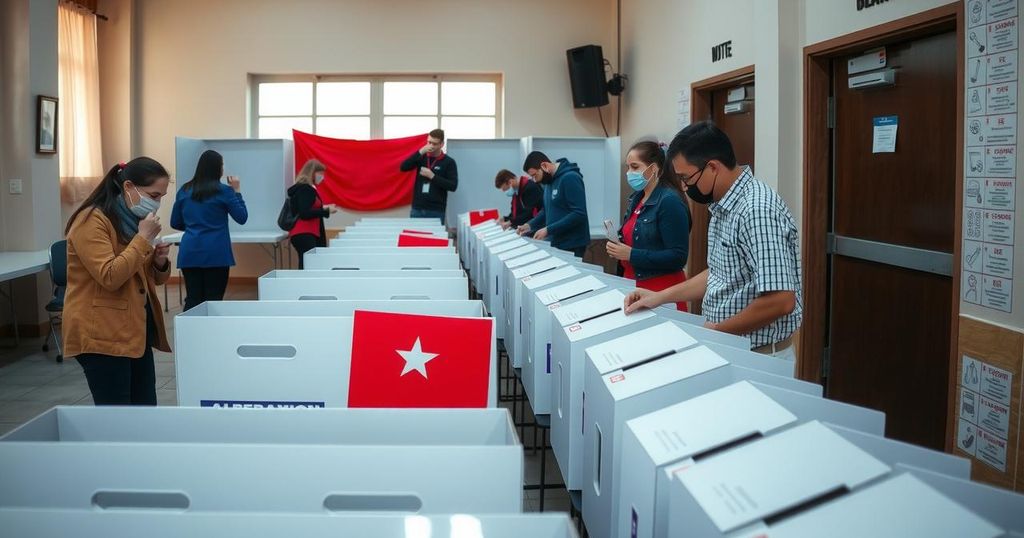Approximately 10,000 Albanians from the diaspora have registered to vote in the upcoming national elections, possibly leading to hundreds of thousands more registrations. This historic participation could significantly alter election results, especially as the ruling government seeks a fourth term amidst strong opposition.
In an unprecedented turn of events, approximately 10,000 Albanians residing abroad have registered to vote in Albania’s national elections, scheduled for May 11. Experts predict that this surge in registrations may result in several hundred thousand votes being cast from the diaspora by the time the registration closes. This significant participation could substantially influence the election outcome, particularly as current polling primarily focuses on voters within the country.
The Interior Minister, Ervin Hoxha, indicated that of Albania’s 4.6 million citizens, 3.7 million are eligible to vote. The 2023 census revealed that only 2.4 million remain in the country, suggesting over one million Albanians are abroad, particularly in nations such as the United States, Canada, Germany, and the United Kingdom.
This shift towards allowing remote voting for citizens outside Albania was made possible after a concerted effort by civil society and diaspora organizations that led to a change in legislation last year. For the first time, citizens may register online and must present proof of their residence in another nation to receive a ballot by mail.
The current ruling government, led by Prime Minister Edi Rama, is campaigning for a fourth mandate against significant challenges posed by Sali Berisha’s center-right Democratic Party and various smaller opposition factions, mostly center- and left-leaning.
The upcoming national elections in Albania are marked by a historic moment, as citizens living abroad are now permitted to vote remotely for the first time. Following legislative changes spurred by advocacy from various groups, the government has created a system to facilitate this process. The participation of the diaspora is particularly noteworthy since it can dramatically alter the traditional voting patterns and results that have been historically dominated by those within the national borders. This situation arises against a backdrop of the current government’s bid for reelection amidst significant political competition.
In summary, the registration of Albanian citizens in the diaspora to vote remotely represents a pivotal change in the political landscape of Albania. With a potential surge of hundreds of thousands of additional votes from abroad, the outcome of the May 11 elections now stands to be significantly impacted. The involvement of the diaspora underscores the evolving nature of democracy in Albania and indicates a move towards inclusivity in the electoral process.
Original Source: www.euractiv.com






